Filmmaker Ray Yeung seeks equality in the movie industry for Asian members of the LGBT community

Film writer and director Ray Yeung is making a difference by putting Asian LGBT+ justice issues on the big screen.
His latest queer romance film, Front Cover, was recently shown at the British Museum on June 24 as part of the third edition of the ‘Queer’ Asia Conference and Film Festival, an expanding event with the purpose of bringing together academics, artists, and activists to discuss LGBT issues in Asia.
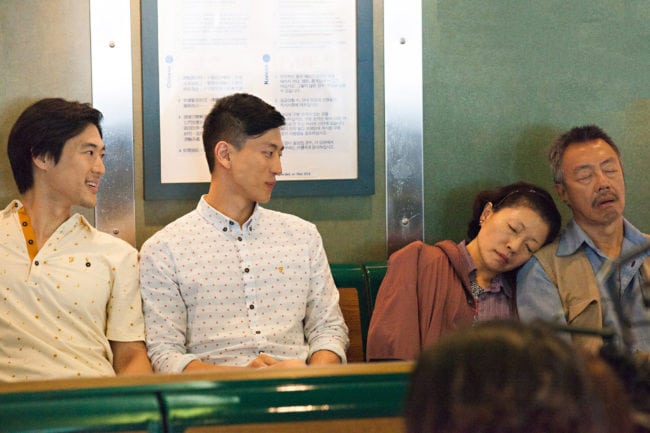
Ryan and Ning with Ryan’s parents in Front Cover (Laura Radford)
Openly identifying as LGBT is still extremely unwelcome throughout Asia and films with LGBT content like Front Cover are censored all over the region. Even in places like China and Hong Kong, where same-sex relationships are legal, they are not recognised by the state and there are no anti-discrimination laws. This makes people want to move to Western countries so they can be open about their sexuality.
“A lot of them dream about coming to the West because they think it’s more free here in regards to LGBT rights and they can get away from the family pressure,” said Yeung. “But when they are here, they will experience a different type of discrimination based on their race.”
Yeung’s goal for his films is to show the difficulties and pressures that Asian members of the LGBT community face both inside and outside the community and show them that they are not alone.
Released in 2015 and screened internationally, Front Cover is the love story of Ryan Fu, a Chinese-American man who rejects his Chinese heritage, and Qi Xiao Ning, a patriotic immigrant from Beijing.
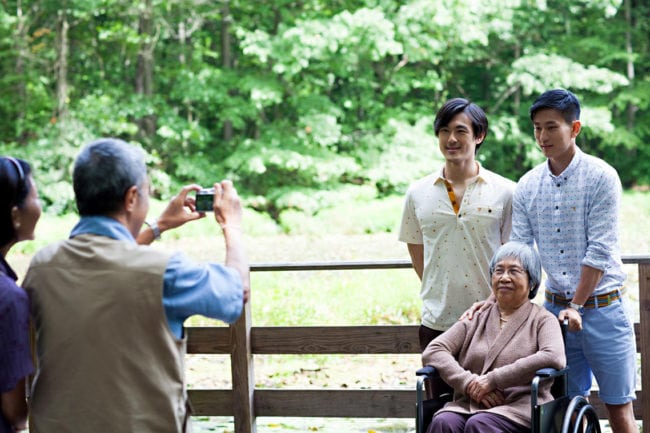
Ryan and Ning with Ryan’s family in Front Cover (Laura Radford)
The film reveals the ideological divide between the two men: One is ashamed of his Chinese heritage, while the other confidently embraces it. The movie also highlights the differences that education and wealth have made on Asian populations immigrating to Western countries.
“Being gay and Chinese in a Western nation, you are the odd one out,” said Yeung. “Many of these people pretend to be as white as possible and not gay. Eventually, you have to learn to be yourself again.”
Yeung’s inspiration for his filmmaking comes from his own experiences as a young Asian from Hong Kong living in the UK.
“I was growing up in a boarding school in England when I was 13, and I was discovering my own sexual identity. There was a lot to combat,” said Yeung. “For a lot of Asian kids who grew up in the West, you always try to fit in, and sometimes when trying to fit in you lose your own identity.”
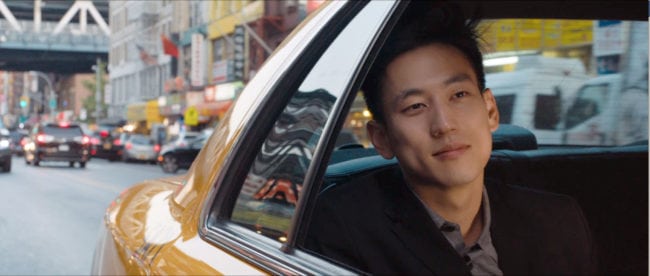
Ryan in Front Cover (Laura Radford)
Yeung hopes that his films will not only educate the public and inspire people to be themselves.
“It’s very touching because people in the audience will often come up to me and say, ‘I never knew someone had the same experience as me,’” he said.
The filmmaker also hopes to target whitewashing in LGBT films and bring the “sexy Asian male” into the spotlight.
“A lot of the time, they are two pretty white boys falling in love. But they don’t really show a lot of interracial relationships,” said Yeung. “Because Front Cover is a double niche film and distributors have to think about the audience, there were difficulties getting it viewed, even in the UK and Europe.”
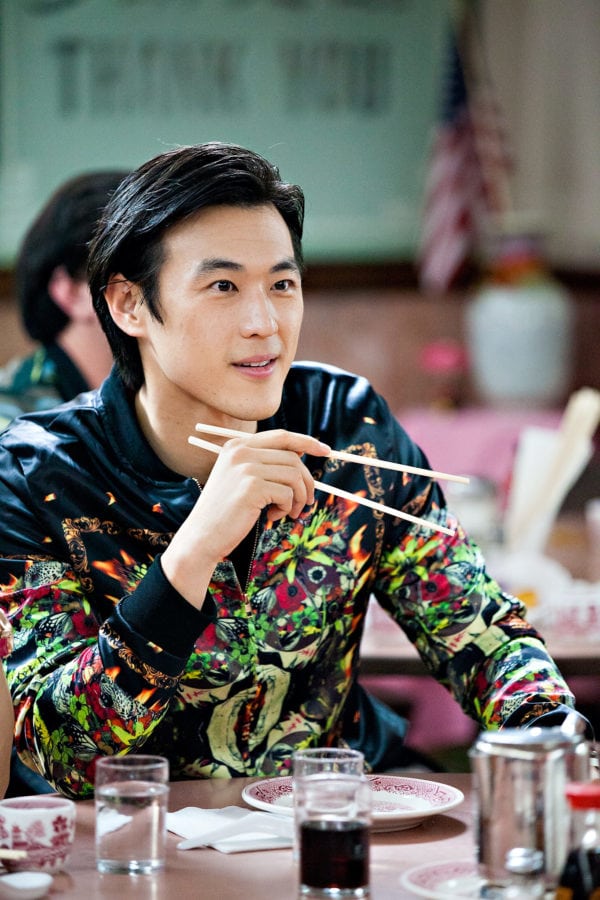
Ning in Front Cover (Laura Radford)
Yeung recognises a catch-22 in the Western film industry that needs to be solved. He believes Asian actors are currently not given enough opportunities to prove themselves as successful at the box office and, because they of that, they are given fewer opportunities to play leading roles.
“We need more Asian writers and filmmakers in the West, because it would be more authentic,” he said. “That way they can use actors and use them properly.”
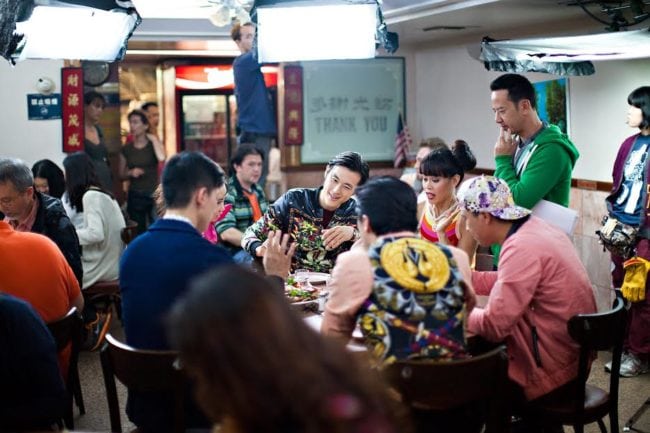
Behind the scenes of Front Cover (Laura Radford)
To help address discrimination and produce more opportunities for Asian talents, Yeung wants viewers to keep in mind the difficulties that immigrants and Asian members of the LGBT community face.
“Be compassionate, look at other people who are different from you and try to understand them without putting up a barrier,” he said. “They come here for help, not to take things away from us.”
Yeung also hopes that people will continue to be more open-minded about the films they watch, even if they have to read subtitles.
“People should open up a little more about movies that might be in different language instead of always watching Hollywood movies about superheroes,” he said.
Yeung’s next project will tackle the topic of aging members of the LGBT community and the everyday discrimination they face.

